Dr de Marco has been under fire from the government recently, after it was revealed that he only paid a company employed to work on his house five years after work began. The bill for the work stood at €34,000, which he adamantly says he has paid in three payments, and that the cheques have also been cashed.
While not giving a copy of the invoice to this newsroom, he did allow The Malta Independent on Sunday to have a look at the document which showed that around €28,000 was charged for the work, not including €5000 VAT, bringing the total bill to around €34,000. Dr de Marco told this newsroom that all the three cheques were made out after the invoice was sent in March, and that they have been cashed.
Asked whether he is willing to publish the Redmap invoice in Parliament, he said he would be in a position to present it in the appropriate forum, but would not specify whether this would be in Parliament or not.
This newsroom asked the PN Deputy Leader whether he had any proof that he had asked for the invoice prior to 2015, he said: “There’s my word, my wife’s word and the architect can also confirm.”

Original news reports on the story read that Dr de Marco hadn’t paid for the work until last month, when Redmap was thrust into the news after Pierre Sladden was reported to have used the British Virgin Islands for a transaction.
Pierre Sladden, the owner of Redmap, was named in the Panama Papers reports. “Among the documents leaked, there is an invoice for some US$1 million. The invoice was assigned by Maltese businessman Pierre Sladden to a company in the British Virgin Islands. The company is called Blue Sea Portfolio Ltd,” reports read.
Redmap also carried out work on the new Mriehel Progress Press premises. Dr de Marco is one of five members of the administration council of The Strickland Foundation, which has a public function and is a shareholder in Allied Newspapers. Adrian Hillman resigned from his post as managing director of the Allied Newspaper group as well as chairman and director of Progress Press on 14th March this year. He resigned after it was alleged that he received secret payments from Keith Schembri, the chief of staff at the Office of the Prime Minister, through the latter’s company Kascoa.
Describing the process which led to the choice of Redmap, he said: “In 2007 my wife and I bought a property in Naxxar. We then applied to redevelop it by knocking down two thirds of it, rebuilding and extending it. We engaged a group called Vassallo Construction Company Ltd, not part of Vassallo Builders. This was the company responsible for the major work, including demolishing and rebuilding the house according to the plans. This work took from 2008 to approximately 2010. We then hired another company called Schranz to work on the drainage system”.
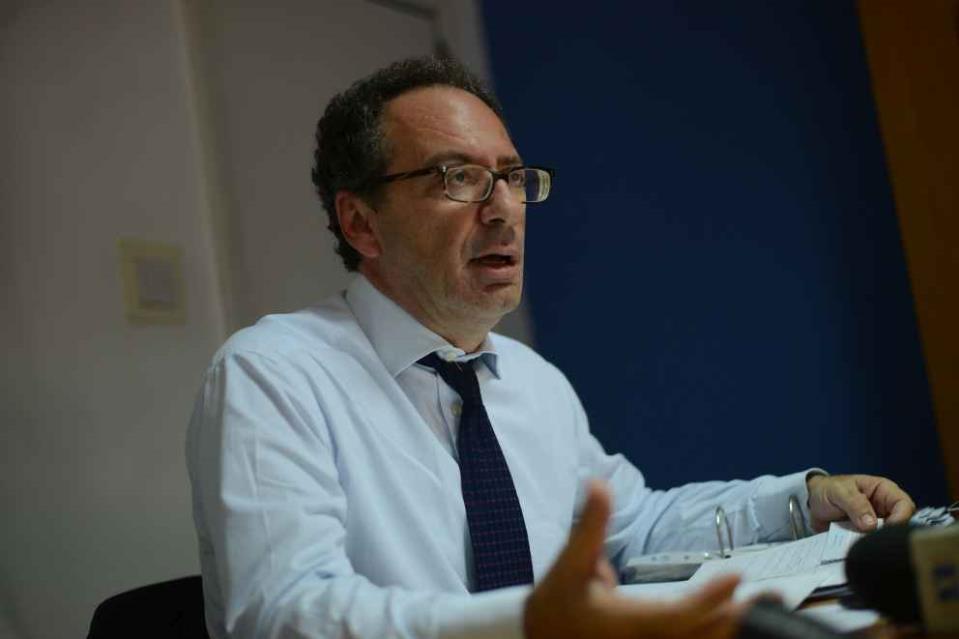
“We then looked at other side-contractors, to plaster the house, to handle the electricity, tiling, doors, apertures etc. All in all there were around 20 people or companies I engaged. In 2010, or thereabouts, we got quotes from people who do plastering work and grouting. My wife had got four different quotations, one of which was from Redmap. These were all different people recommended by the architect or by contractors.
“The quotations were mainly for grouting, plastering, silicato, some painting etc.
“We eventually chose Redmap for grouting and day work – the occasional job in between one contractor and the other normally charged according to the labour on site and the material,” he said. “The day-work jobs included, for example, the ramp going down to the garage, arranging the membrane for the garden planters, screeding prior to tile laying in certain areas etc.”
Dr de Marco was asked when he got to know that Mr Sladden’s company had done work on the Progress Press building in Mriehel. “When they were recommended to me, I did not choose them because of that. People would say for example – this guy is good as he worked on such and such a project. It was more an issue of showing me that he was competent for the job. I repeat, we sought quotations from four different people. At what time did I get to know he did work for the Allied Group, I don’t know. Did I get to know, eventually yes. This was not the consideration for selecting the person however.”
Asked if he had used Redmap on any other projects over the years, he said no and that this was a one-time thing.
Continuing to describe the work on his house, he explained that when it came to plastering, he didn’t end up choosing either of the four entities they had requested quotations from, including Redmap, but went for another company called Rado.
“This whole project is a long process as the work is being carried out gradually. The house is now nearing completion, but we still don’t have lighting or bathroom accessories, no kitchen, some doors still not installed etc.
“Redmap came in around 2011. They began by doing some clean-up work and grouting part of the façade of the house. The rest of the façade was in silicato, which was not handled by Redmap, but by another contractor we had engaged. Redmap handled the grouting for the garden in around 2012 and 2013. In between, they would do occasional jobs and the last job they did was in 2015 where they effectively raised a wall and did some other small jobs”.
“As we went along, I would ask the company for the bill, and their reply would be ‘we will send the bill all at once’ (Nigbru il-kont f’daqqa). He was aware the house was not complete and that his work was carried out in-between work done by other contractors, and he could gauge that there was still more work to be done.”

‘I pay every contractor I engage’
Defending himself against the allegations being made against him, he stressed that with every contractor he engaged, he always made it very clear that he would pay them.
“I work for a living and get paid for it. Likewise, I expect any contractor or supplier who does work for me to get paid for their work. I engaged over 23 different contractors and suppliers. Among those previously mentioned, other persons and companies include a certain Charles Camilleri for the water and electricity, a certain Vassallo for the tiling, Satariano provided the bathroom tiles, Malcolm Cassar the flooring, Joe Mifsud from Zebbug provided the doors, a certain Charles Seychell the garage door, BT Commercials for the ACs, Halmann for part of the bathroom tiling, Dolphin Pools for some of the pool machinery, Vella for apertures, a certain Michael Sciberras – who is now deceased but his wife has continued the work – to waterproof the garden reservoirs, Agius marbles to provide some of the marble work, Elektra for some of the light fittings. These are all contractors who have done various work on the house and I have paid every single person.
“There is absolutely no reason why I should not want to pay Redmap or expect them not to charge me. I have always insisted, without exception, on paying everyone. You need an invoice to pay someone and as soon as I got it I paid. He had no reason to doubt I was going to run away and not pay him. I doubt I have a reputation of being a person who doesn’t pay his dues. I have always paid all my dues.”
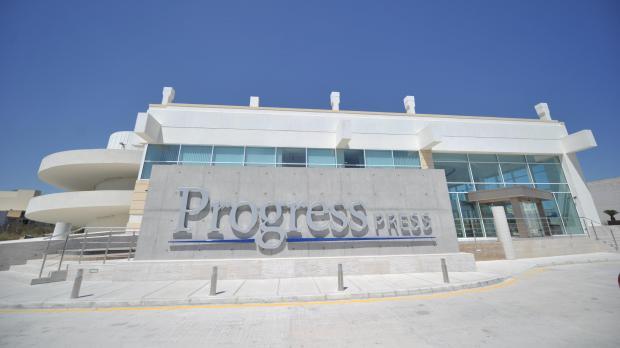
Dr de Marco said that there were a number of lies and insinuations made by the PL. “The first was that I engaged him as he was doing work on the Progress Press building in Mriehel. For me, whether he was doing work there or not was beside the point. I am not an employee of The Times, I am not a manager at The Times, I am one of five council members on the Strickland Foundation and the lawyer for Allied newspapers. In July 2011, the Mriehel building was inaugurated by Lawrence Gonzi, so as a building it was complete. I’ve engaged 23 entities, whether one of them provided material for the Mriehel building for example, I really don’t know and really don’t care. I only seek someone’s service based on whether they are competent or not, whether their prices are competitive or not and whether they can deliver a task in time or not. This is really what anyone building a house decides upon. You shop around and try and find the best.”
Asked when he had first requested an invoice from Redmap, he said it was when the first job, which was grouting the façade, was completed in 2011. “Please appreciate this is an ongoing task, not continuous as we didn’t have people there from 2011 to 2015, but rather they were people who would come according to the task given. Regarding their decision to send the bill at the end, maybe today with hindsight I ask ‘should I have accepted or not?’, but I think quite a few people do that. When people engage someone to tile their house, the contractor would tell them that he would send the bill after work is completed. In this case maybe the process took so long as we were in no hurry to finish the house. The moment the bill was presented, I paid.”

He proceeded to show this newsroom two files containing invoices and copies of cheques used to pay for work carried out, with invoices dating back to 2008 for the various aforementioned companies. “Having paid all these people, I had absolutely no reason not to pay Redmap.
“Should it have been issued earlier? All I can say is that by 2015 the work that he was doing was nearing completion, bar any snags and some grouting which was left. In 2016 I again asked him to issue the bill telling him ‘I expect you to get paid like everyone else did’. He finally issued the bill and I paid in three payments. I can also confirm that all cheques have been cashed.”
Dr de Marco said that Mr Sladden never once told him that he didn’t want to be paid.
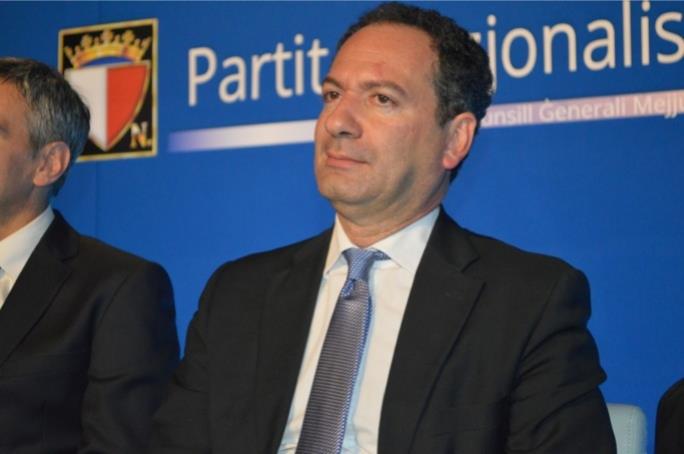
The most precious thing in life is your reputation
“I am hurt by these allegations as I believe you go into politics to be of service. All my life I tried my best to do things the correct way to safeguard my reputation, my family’s reputation, my father’s reputation, but more than anything else, everything that I value and believe is correct. I’ve always, I hope, done the right thing. I’ve always worked hard for a living. I was always told I had to work hard in my profession, to be independent of politics and not dependent on it. The most precious thing in life is not money, not earnings, but one’s reputation. When the Labour Party, simply because it has its back to the wall in a time of crisis, attempts to start mud-slinging first at Simon Busuttil, then Ann Fenech, then Beppe Fenech Adami and now me is shameful. When we discuss the new way of doing politics, this is not the right way.
“If we continue down this route, nobody will be interested in giving their share to this country and becoming part of the political crowd. All that is going on now will disincentivise anyone from wanting to remotely participate in politics. Politics is not necessarily dirty and can be a way of trying to do some good for the country we believe in. If we continue this way we are going to lose the next political generation which could be ruinous for the future of this country.”
Turning to recent PN gains on the Labour Party, and what he believes the PN needs to do in order to continue closing the gap between the parties, he explained that the very fact the PL has lost some of its support is already one major achievement for the PN. “We managed to expose the fact that while talk is cheap they haven’t been able to deliver on their pre-electoral promises. I think people did not vote in the last election for the PL simply because of the change in economic direction or things like that, but they also voted for more transparency, accountability, good governance and a new style in politics. The reality is that we have seen a government which went from one scandal to the other. The Café Premier scandal had the Prime Minister saying that they were on a learning curve and possibly acted too hastily and were still learning. The reality is that they seem to have learned very little since then, as they then moved on to the Australia Hall scandal, the oil hedging scandal, the Gaffarena scandal.
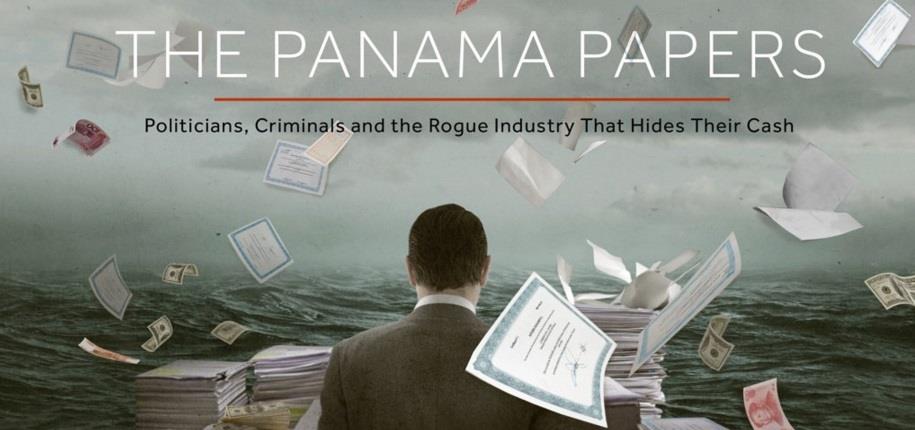
‘Government is all about secrecy and refusing to publish contracts’
“The latest scandal of all, the Panama Papers, simply reflects what this government is about – secrecy, and refusing to publish anything. They have, for three years, refused to publish the Electrogas contract, the BWSC plant sale, the full commercial terms of the Henley & Partners contract etc. This is why the PL is laughable when they call on people to publish their invoices while they themselves refuse to publish any other contract they have signed on our behalf, on behalf of the state. All they came up with was that they would do their best to publish them by the end of the year. What is stopping them from publishing the contract with Shanghai Electric today as opposed to the end of the year?”
Asked whether, given that the economy has been doing well over the past three years, the PN is effectively criticising a successful economic policy, the PN Deputy Leader said that the economy has been doing very well for longer than the last three years. “In the 2008-2013 legislature, Malta’s economy managed to outpace the economies of many EU member states, despite the financial crisis. We also had one of the lowest unemployment rates back then. We had year-on-year record growth in tourism, attracted new industry niches such as aviation etc. For people to say the economy is only doing well now is unfair.
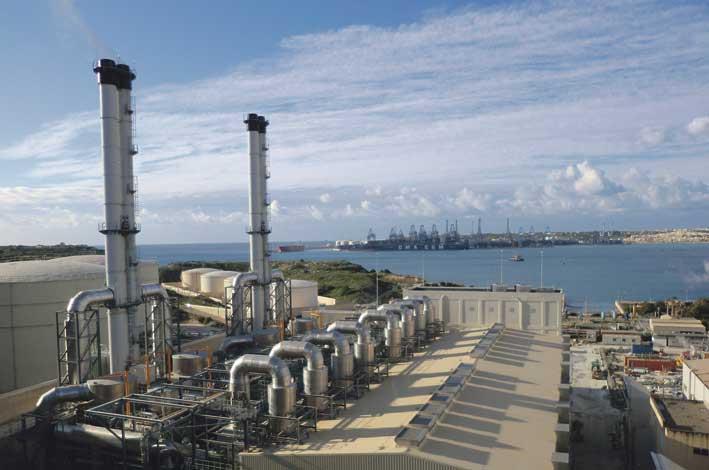
“Our criticism today is not that the economy is not moving forward, but rather that before the government says the economy grew by 6.3 per cent, they should be careful as a significant portion of that percentage was driven by one-off events, such as the EU fund absorption before the closure period. In 2015 we absorbed something like €200 million from the €850 million available. That affects growth but it won’t be there in the coming years. The new power station investment, which we calculated to be around €300 million is a one-off. We won’t be building another one every year. If you have €120 million coming in from the IIP, it is going to grow the economy, but it has a shelf life as there is a limited amount of passports the government can sell. We are urging the government not to rest on its laurels based on one-off events that might not necessarily be there tomorrow.”
He mentioned that government expenditure is significantly up. “If you look at government spending on personal emoluments, it has risen tremendously. The government then says more income is coming in, thus keeping the deficit levels at a low margin. But this income is driven by certain one-offs and to a certain extent the high excise fuel duties. My concern is that while revenue is up as the economy is, there could come a time when the economy will not do as well and income would go down, but the wage bill would be the same. Government expenditure doesn’t fluctuate according to how well the economy does. If you have a high wage bill it’s effectively a fixed recurrent cost as I cannot see the government laying people off. Which is why we must be careful and curtail government expenditure while thinking about attracting new economic niches.
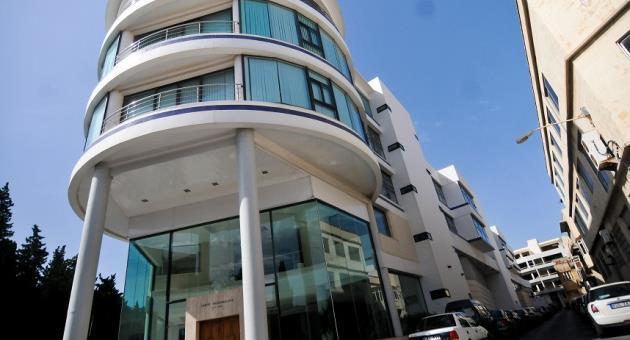
PN’s plan regarding public sector jobs
Asked whether the PN plans to reduce public sector jobs, he said it’s not a matter of layoffs. In the last administration, the PN had a strict policy where for every two public sector employees that retire only one would be engaged. “We had strict control on the amount of people one could employ, getting justification from the civil service and so forth. Those controls seem to have been thrown to the wind. We would bring back those controls. As for the Health and Education sectors, these are two sectors we must not cut down on as they are crucial areas. With all due respect however, you do not employ a full-time driver as a part-time chairman. That’s a standard example. I remember that around two years ago, Enemalta hired around 200 people including masons: what does Enemalta need stone masons for?”
Turning to the manufacturing industry, he said that it is struggling but the government is praising itself by saying that electricity rates dropped by 25 per cent. “What the government is not saying is that the price of oil dropped by far more than 25 per cent. At around the election, the price of oil stood at around US$120 per barrel and is now hovering between US$30 and US$40 per barrel. Then there’s the costs involved for fuel the industry uses as well. We know the manufacturing sector is struggling as industrial production has dropped significantly and has not been this low only since 2009, the year of the financial crisis, and that is unacceptable.

“What the government did with Trade Malta is a good idea, but its budget is ridiculously low. If we want to really help the export industry, we need to create new schemes and incentives. We have some good Maltese factories, apart from the larger ones like Playmobil, which have a potential for export. It’s a pity that a lot of Maltese manufacturers have not fully exploited the benefits of EU membership. There’s a big market out there and this is where the government can help. We also need to make schemes to keep factories competitive. While water and electricity and fuel are two sides of the equation, helping them take quick day-to-day decisions is another.
As for the Trade Imbalance, he said that before the argument was that retail was struggling but e-commerce was doing well. If e-commerce is going down then it shows the economy is not doing too well. Ultimately, when imports go down it’s a reflection of an economy doing well on paper but might not be doing that well in reality. Ultimately, a strong economy is needed to keep help importation levels remain strong along with good incentives and a good competitive package to help the manufacturing industry which will help exportations go back up.
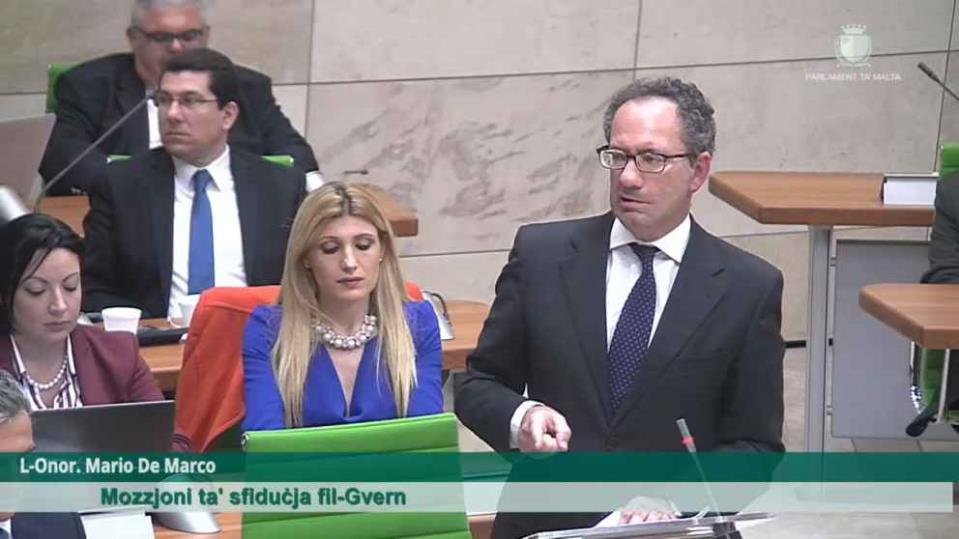
No confidence vote: the real debate was not in Parliament
The Deputy Leader was asked why the PN chose to call for a no confidence vote in the government, knowing that it would lose. “We were aware of the number of appeals to the Prime Minister to remove Minister Mizzi and Mr Schembri. We had Finance Minister Edward Scicluna in Parliament make an impassioned appeal for the Prime Minister to take the hard and needed decisions today before tomorrow in the national interest. A few days later MEP Alfred Sant made a similar appeal for Minister Mizzi to resign for the common good. When you have these two people aside from the Opposition and the media calling for Minister Mizzi to resign, Minister Mizzi saying he won’t resign unless asked to by the Prime Minister, and the Prime Minister defending them throughout… don’t forget when the press first asked if Mr Schembri had a company in Panama or not the Prime Minister said ‘be careful of libel suits’.
“The fact is that it’s completely unacceptable for a Minister to open a company in Panama soon after taking office. It’s ludicrous. No excuse made that he or Mr Schembri, who has hardly spoken to the press, is credible. Given that Dr Muscat refused to take the decisions needed in the interests of his own country, I think we had no choice other than submitting a motion of no confidence in the government headed by Dr Muscat, even though we knew the numbers were against us”.
The real debate was not in Parliament, the real debate is outside Parliament. Even though the government won the vote, the people out there are clearly saying that this type of government is unacceptable, and the survey shows that this is unacceptable. I think the people are delivering a vote of no confidence in the government.”